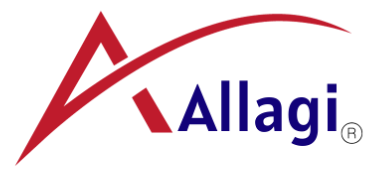 In the rapidly evolving landscape of higher education, traditional lecture-based instruction is giving way to learner-centered approaches that foster active engagement, critical thinking, and the acquisition of meaningful knowledge. Recognizing the limitations of passive learning, institutions are embracing pedagogical frameworks that empower students to become active participants in their educational journeys. Among these approaches, active learning and constructivism have emerged as influential paradigms that promote student agency, collaborative learning, and the construction of knowledge.
In the rapidly evolving landscape of higher education, traditional lecture-based instruction is giving way to learner-centered approaches that foster active engagement, critical thinking, and the acquisition of meaningful knowledge. Recognizing the limitations of passive learning, institutions are embracing pedagogical frameworks that empower students to become active participants in their educational journeys. Among these approaches, active learning and constructivism have emerged as influential paradigms that promote student agency, collaborative learning, and the construction of knowledge.
Active learning emphasizes the dynamic involvement of students in the learning process. Rather than passively receiving information, students are encouraged to engage with course material through various interactive activities, such as problem-solving, case studies, simulations, and group discussions. By actively participating in these activities, students develop critical thinking skills, problem-solving abilities, and a deeper understanding of the subject matter. Active learning empowers students to take ownership of their learning, fostering a sense of responsibility and motivation that extends beyond the classroom.
Constructivism, on the other hand, places emphasis on the active construction of knowledge by learners. According to this perspective, learning is not a passive reception of information, but an active process of meaning-making and sense-creation. Students construct knowledge by integrating new information with their existing mental frameworks, making connections, and reconciling any discrepancies. Constructivist approaches in higher education involve authentic learning experiences that encourage students to explore, question, and reflect upon complex problems and real-world situations. Through these experiences, students develop higher-order thinking skills, conceptual understanding, and the ability to transfer knowledge to new contexts.
Within the context of higher education, the role of the teacher becomes pivotal in fostering active learning and constructivist practices. Instead of solely acting as a disseminator of knowledge, the teacher transforms into a facilitator, guide, and mentor. The teacher’s role involves creating an inclusive and interactive learning environment, designing engaging learning activities, and providing guidance and support to students as they navigate the complexities of their academic pursuits. By adopting a learner-centered approach, the teacher empowers students to take responsibility for their learning, encourages critical inquiry, and facilitates the construction of knowledge through active engagement.
As a conclusion, active learning within a constructivist framework, supported by the teacher’s guidance and facilitation, holds great potential in higher education. By emphasizing active engagement, knowledge construction, metacognitive development, and collaborative learning, educators can create enriching learning experiences that prepare students for academic success and lifelong learning. The teacher’s role in higher education extends beyond content delivery to become a facilitator, mentor, and guide, nurturing students’ abilities to construct meaning, think critically, and thrive in an ever-evolving global landscape.
 Fernando Vera, PhD. Doctor in Educational Sciences, academic, researcher, and international consultant, with advanced postgraduate training at the master’s and doctoral levels. He has undertaken academic and research stays in China, Israel, Colombia, Mexico, and Argentina. Currently, he is completing his second doctoral degree, with international mention from the University of the Basque Country/Euskal Herriko Unibertsitatea (UPV-EHU), Spain.
Fernando Vera, PhD. Doctor in Educational Sciences, academic, researcher, and international consultant, with advanced postgraduate training at the master’s and doctoral levels. He has undertaken academic and research stays in China, Israel, Colombia, Mexico, and Argentina. Currently, he is completing his second doctoral degree, with international mention from the University of the Basque Country/Euskal Herriko Unibertsitatea (UPV-EHU), Spain.
